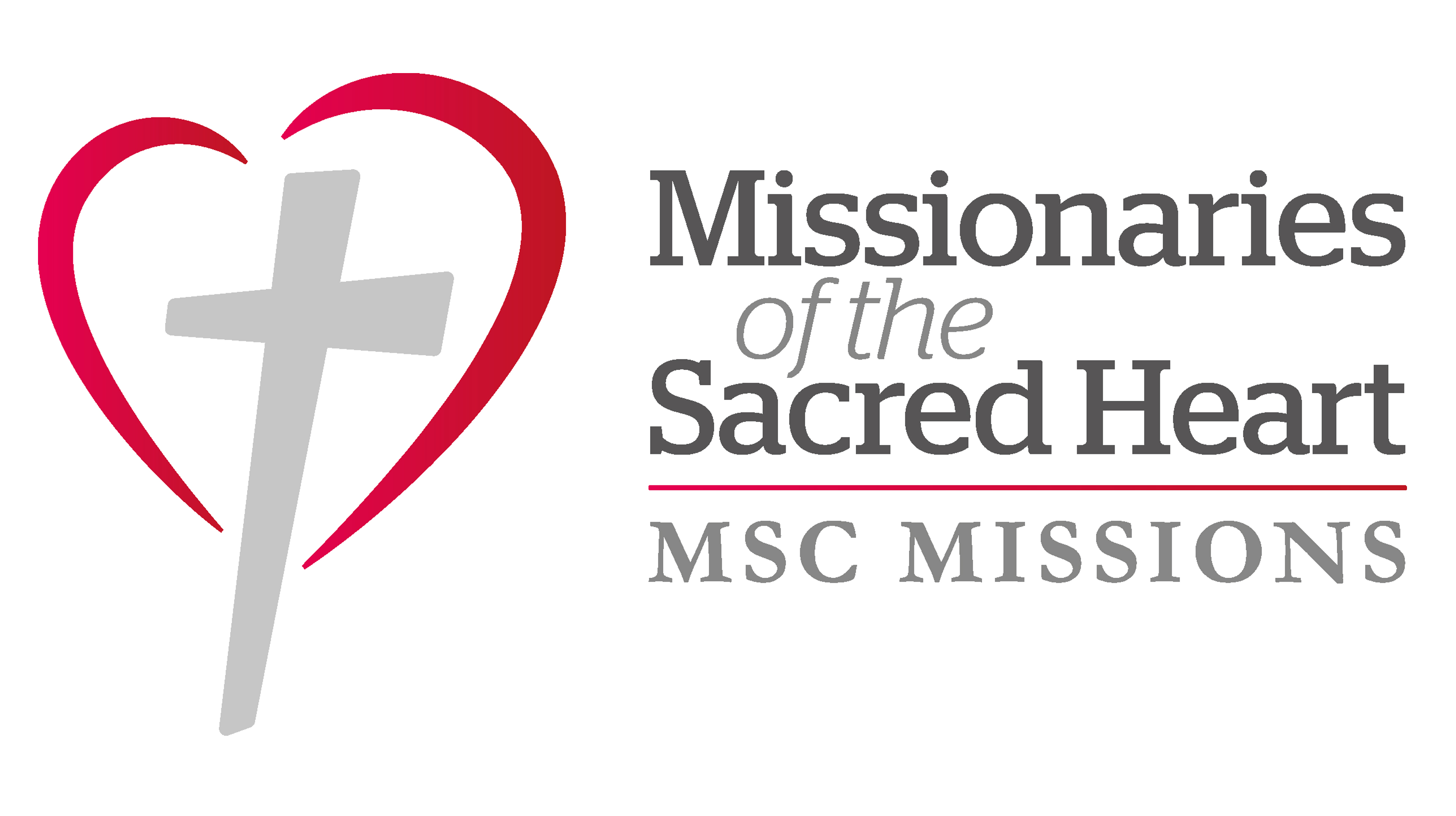Jan 14, 2026
As another new year begins, we’re glad to share news from Sr Sally and our friends at the Holy Family Care Centre in South Africa.
The Holy Family Care Centre is located in Ofcolaco, in the Limpopo Province of South Africa, and is run by the Daughters of Our Lady of the Sacred Heart with a dedicated team who provide residential care for up to 80 sick and vulnerable children. Many of these children are living with chronic illnesses such as HIV/AIDs, TB, and other critical conditions. Many of the children have lost their parents, and all are extremely vulnerable, so the Holy Family centre is a true home to them. Here in the Irish Province, our mission friends and extended Sacred Heart family are glad to be able to provide long-standing friendship and support to Sr Sally and the OLSH Sisters in Ofcolaco.
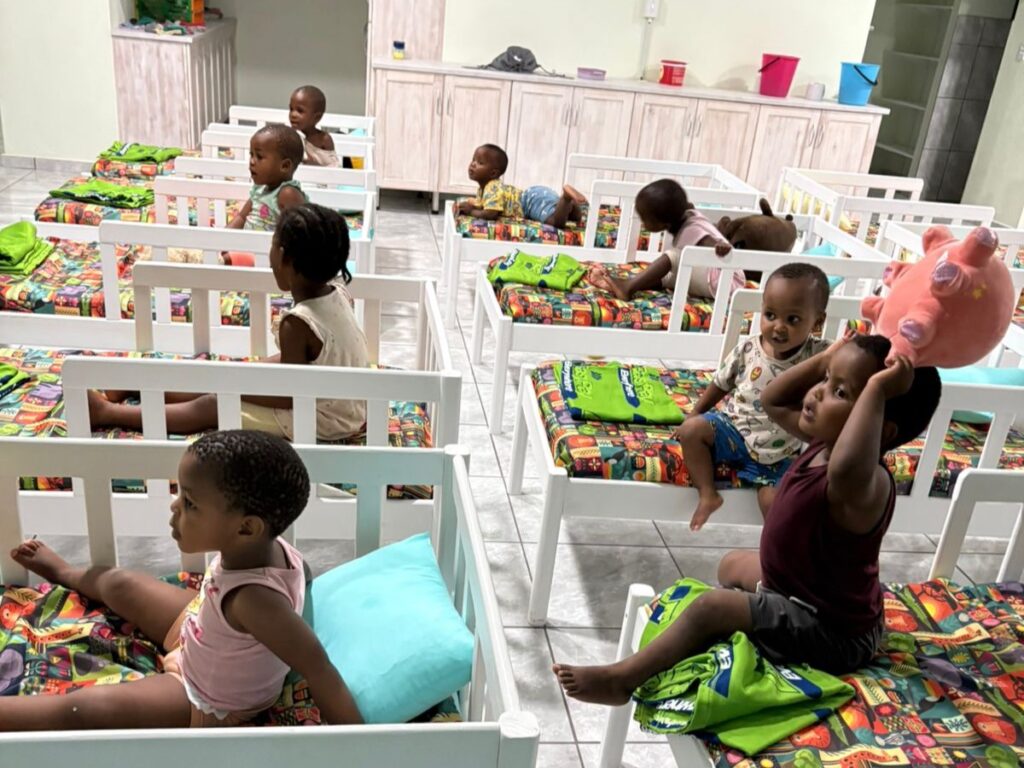
The new toddler room at the Holy Family Care Centre, supported by the generosity of our mission friends and benefactors in the Irish Province.
Throughout 2025, our mission family and benefactors here at home have given invaluable support to our friends at Holy Family, with our Camino pilgrimage in September raising €13,000 for the children in their care. The generosity of our mission friends in the Irish Province has also contributed to a special new dormitory dedicated to the toddlers and pre-schoolers at the centre, who had previously been sharing a room with older children up to the age of 10. Sr Sally has sent us a wonderful video of the Holy Family toddlers enjoying their new space, and their smiles and songs say it all!
It hasn’t been all fun and games at the centre, as January has brought with it rain and floods that have blocked the road leading to the facility, certainly making life more challenging for the Holy Family team.
As we begin to journey together through another new year, we thank you, with grateful hearts, for your continued friendship and support of our mission projects, and we wish Sr Sally and all the Holy Family community a happy and healthy 2026.
Apr 15, 2025
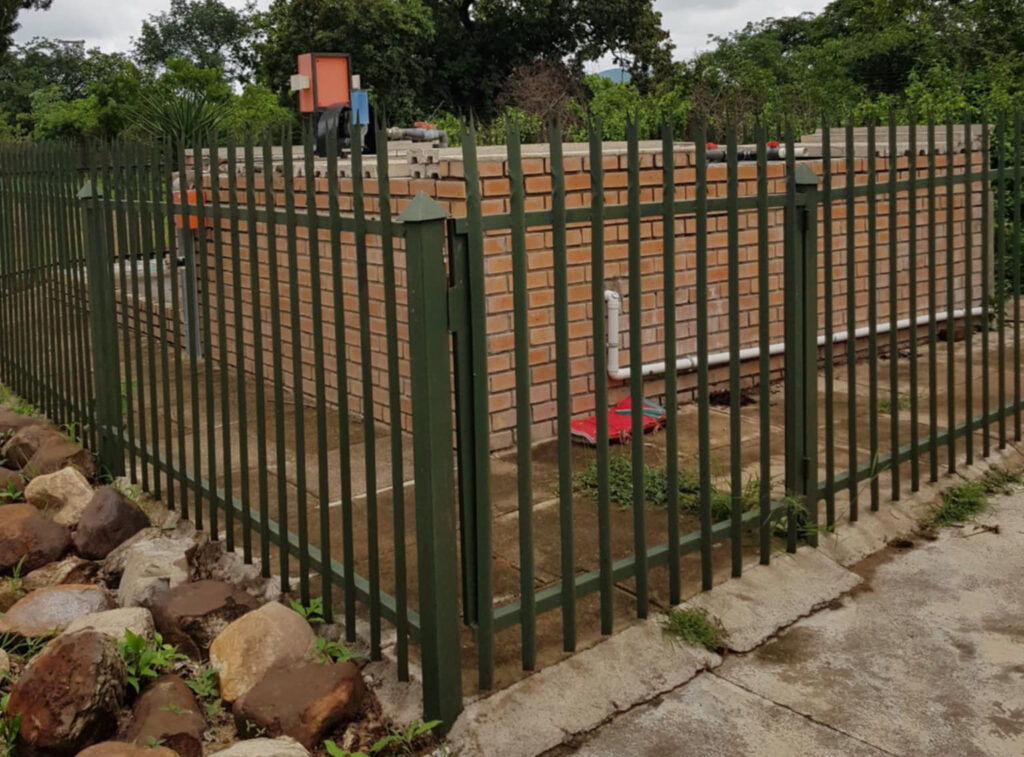
Our friends at the Holy Family Care Centre in the Limpopo Province of South Africa have been in touch with an update from the centre, where new solar panels have been installed thanks to the support of our mission friends and benefactors here in the Irish Province. The centre is run by the Daughters of Our Lady of the Sacred Heart, and here, they provide dedicated care for orphans, and sick and vulnerable children, with approximately 75 children in residence at any given time.
In our 2024 World Projects Appeal, we asked if you could help to raise €9,900 for the centre to install solar panels. Due to “load shedding”, it is an unfortunate fact that the centre’s electricity is frequently cut, and the emergency generator is expensive to run. The solar panels will power the unit’s bore water well and sewerage pumps, ensuring savings on power and the prevention of major system failure with when the electricity cuts out.
The solar panels have now been successfully installed, and the community at Holy Family are already reaping the benefits of having a dependable and sustainable source of power for the centre. As ever, we join our voices with our OLSH Sisters in thanking our mission family sincerely for your continued friendship and support, which makes such a great difference to the Holy Family children.
HELP SUPPORT OUR MSC MISSIONS PROJECTS
Apr 11, 2025
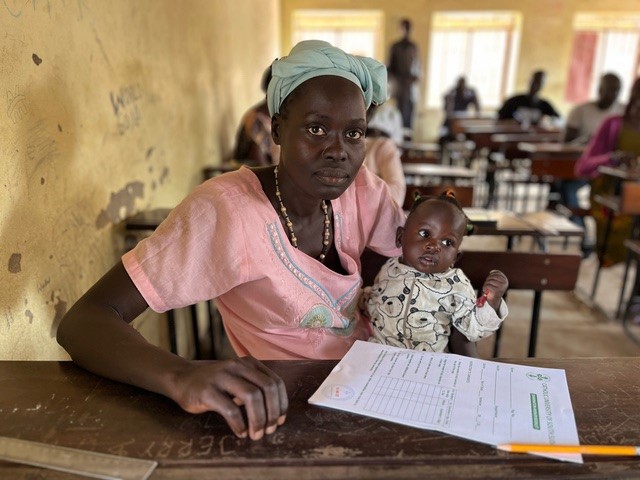
Back to School for Exams
The Catholic University of South Sudan, Rumbek Campus experienced a good, but challenging semester. For fourteen weeks, lectures were held in a local Catholic secondary school. This return to familiar surroundings was a nostalgic experience for some students, allowing them to reconnect with former teachers and cherished memories. While the hospitality was appreciated, the school’s simple facilities and limited resources presented some challenges. Fitting adult students into the smaller desks required some adjustments, but everyone quickly adapted.
Late-Night Study
The students have done their best to make time to study, not easy in a country where less than 9% of the population has any access to electricity and the sun sets every night by 6:00pm. Up until recently, students would study at home with only the light of the mobile phone to read. We upped our Late-Night Study programme to three evenings a week, allowing students to work until 8:00pm in our library. Initially, only men attended, as in the culture it would be considered inappropriate for women to stay out late; however, over the last few weeks, more and more of our female students have been able to attend. Our University Librarian stayed with them and provided them with support when needed. It has been a real success, and we plan to continue the programme into next semester.
Exams in a Heatwave
Currently, we are dealing with an intense heatwave in South Sudan. For the past two weeks, all schools have been closed by government order, with daily temperatures ranging from 39°C to 42°C. Despite these conditions, we have had to conduct our end-of-semester exams. Even with a schedule pushed to late afternoon, the heat remains a significant factor. The students’ resilience has been truly commendable, as they have not voiced a single complaint! However, all good things come to an end and so too do exams. Tomorrow will be their last day before a two-week break and then we are back into Semester Two.
Step-Free Access for All
As you are probably aware, the source of our displacement is the ongoing renovation of our lecture halls. The work is progressing well, with ceilings already in place. Previously, the hall only had a corrugated metal roof, which made the room into a sauna during hot days, and when it rained you could hear nothing at all. We are only halfway through the project, and already the changes have made a huge difference. Now we are getting ready to install the pipes for the electrical system and plaster the walls. We are also using the opportunity to make the building step-free, getting rid of ramps and raising the floor to allow anyone with physical disabilities to study freely. As a Catholic university it is our goal that anyone who wants to study and has the academic ability should be able to undertake third-level studies.
Nhialic ke yin,
Fr. Alan
HELP SUPPORT OUR MSC MISSIONS PROJECTS
Read more from Fr Alan’s missionary journey in South Sudan:
Feb 11, 2025
OLSH Global Outreach
MSCs from all over the world continue to work in partnership with the Daughters of Our Lady of the Sacred Heart (OLSH), providing help and support to the poor and vulnerable on our shared mission: “May the Sacred Heart of Jesus be everywhere loved.”
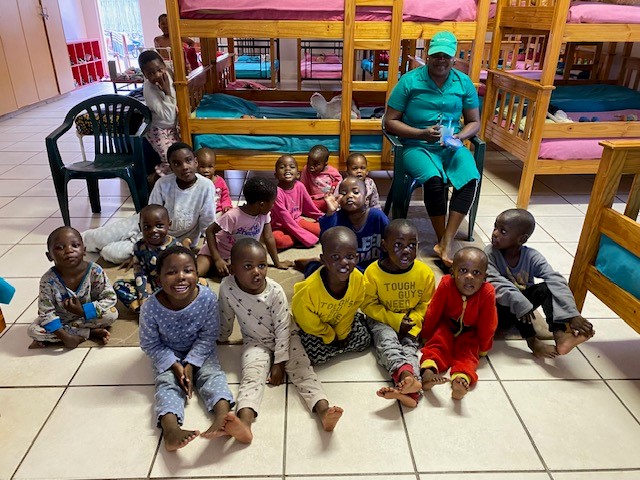
OLSH outreach in Brazil
The Daughters of Our Lady of the Sacred Heart are active in their ministry in several areas across Brazil, from educating young children to caring for the poor, the hungry, and the elderly. This year, they’re appealing for our help in funding a number of different projects that will continue to change lives for the better in regions of real and pressing need.
Sr Maria José Ferreira writes from Capanema, in the south of Brazil. The local community are currently working together to build a new chapel for the area, which is now almost complete. The community here need a sound system for their new chapel, to benefit their prayer and celebration. “We have celebrations there already, and we have a children’s choir also,” writes Sr Maria José. “It is a dynamic community. I believe this chapel will help many people to grow in faith.”
€2,000 will pay for a sound system in the new chapel, giving the community of Capanema
a place to gather in faith and love.
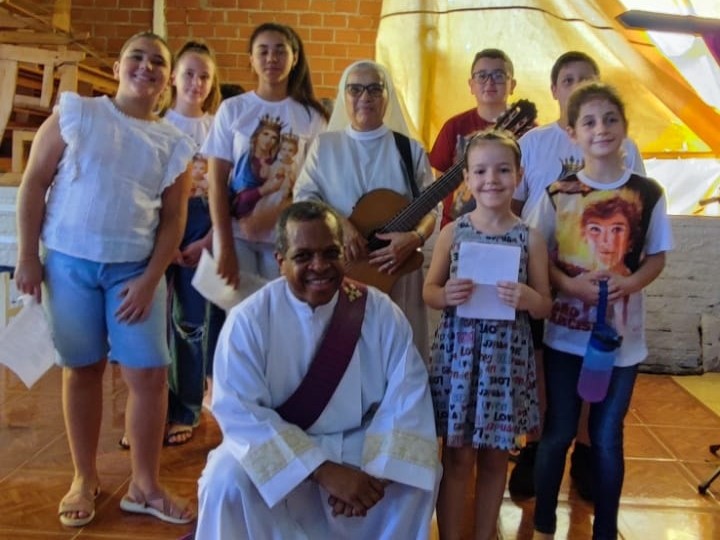
Sr Maria José is also raising funds to provide food parcels for very poor families in the local area of Capanema. “My apostolate is to visit families around the parish area,” she writes. “I have met many people, and I pray with them. It is so sad to see people living difficult financial times. Some do not have enough to eat. I would like to help them, and I am asking for money to buy them some food bags. I am aware this will not solve all the social problems that I see but it will give them a relief for some months.”
A total of €2,000 will help Sr Maria José to provide essential food parcels
for hungry families in the coming months.
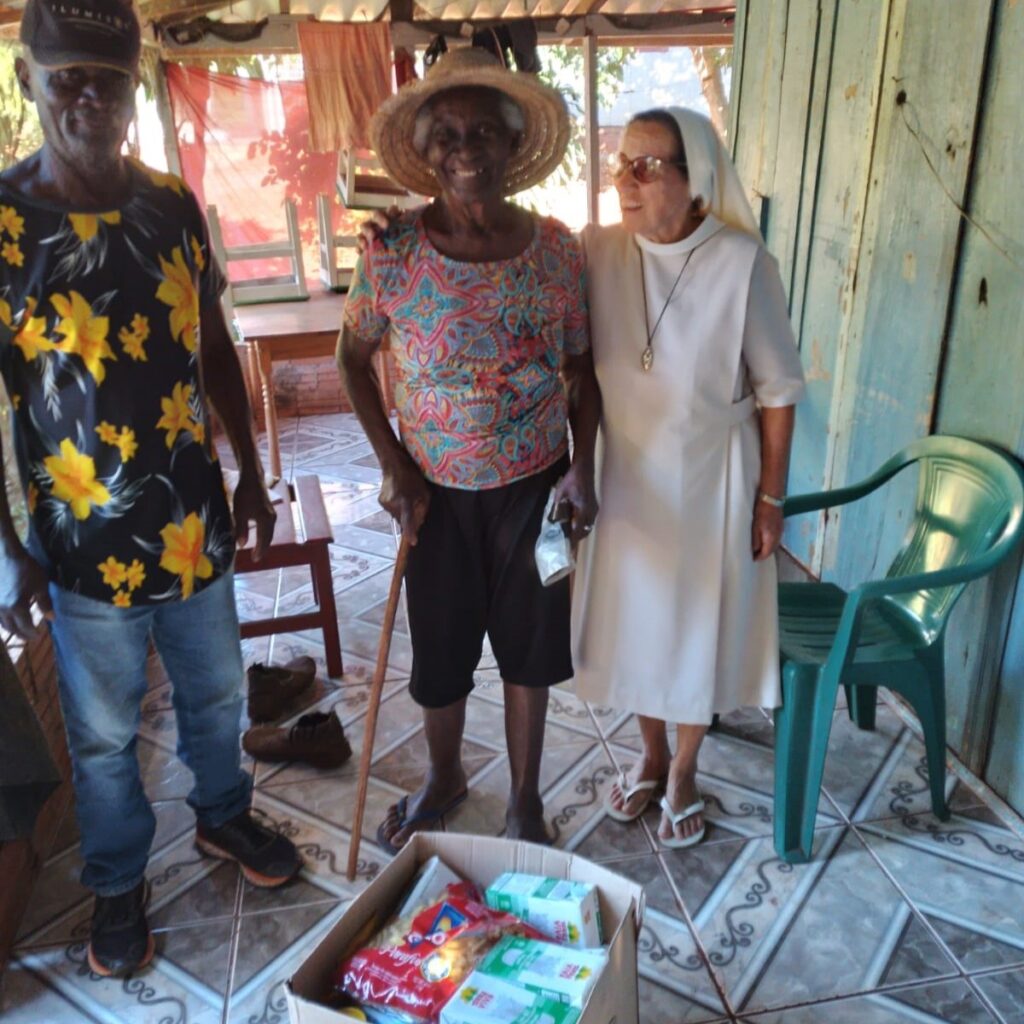
The Daughters of Our Lady of the Sacred Heart run a school in Rio de Janeiro, where the children get great enjoyment and benefit from their study and practise of musical skills. The school has a music classroom dedicated to these studies, and the Sisters here are working to raise funds to buy new instruments for the children and extend their current collection.
€2,000 will help OLSH Sisters in Rio de Janeiro to buy new musical instruments
for the children in their school, empowering and encouraging
them to learn new skills and foster creativity.
OLSH Sisters in Brazil also write of the importance of play in the development of the children in their care at their Rio de Janeiro school. “We believe children learn a lot when they are playing,” they write. “It is important to give them toys and objects that can help them to develop skills.” The Sisters have an area dedicated to play in their school, for children aged between 2 and 10 years of age, and they need to purchase new toys and educational games to assist in the children’s development.
€2,000 will buy a selection of educational toys and games
to help the children learn and grow through play.
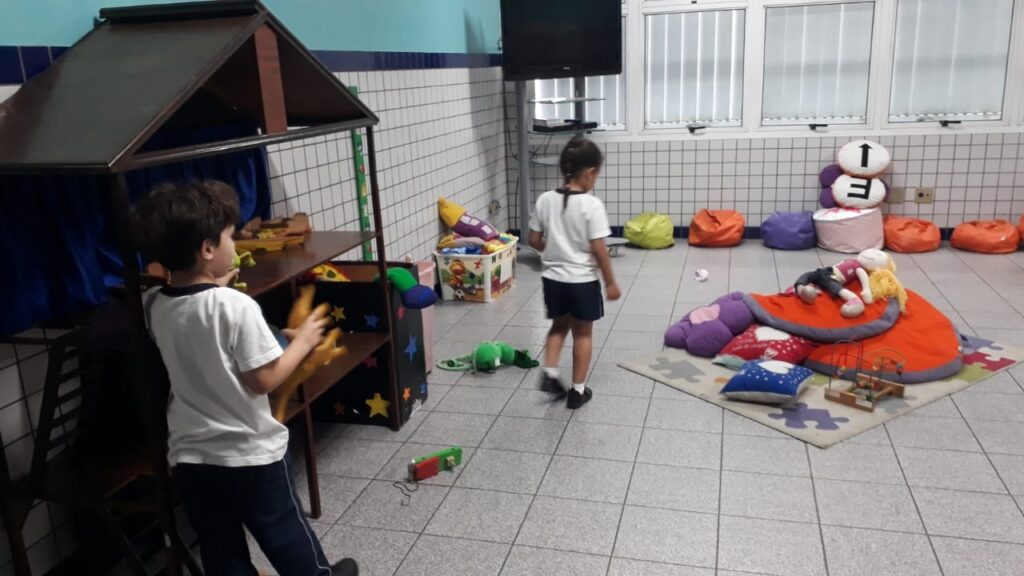
PLEASE SUPPORT OUR OLSH SISTERS IN THEIR GLOBAL OUTREACH
OLSH ministry across Africa
The Daughters of Our Lady of the Sacred Heart have been ministering across two dioceses in Burkina Faso for several years, and are now working to set up ministry in a third diocese, with enthusiastic and motivated young women requesting to join the Congregation. The OLSH Sisters involved in the formation programme for these young women are looking to transfer the Postulate from Zagtouli to Siogo, Tampoussimdi, which is a calm and peaceful place conducive to formation. The Sisters are now working to raise funds to build two new dormitories for the Postulate in a village not far from Ouagadougou, where there is plenty of space for the formation programme, and also scope for gardening and care of livestock in the surrounding fields.
A total of €10,000 will fund two new dormitories for these young women
working together in the love of Christ.
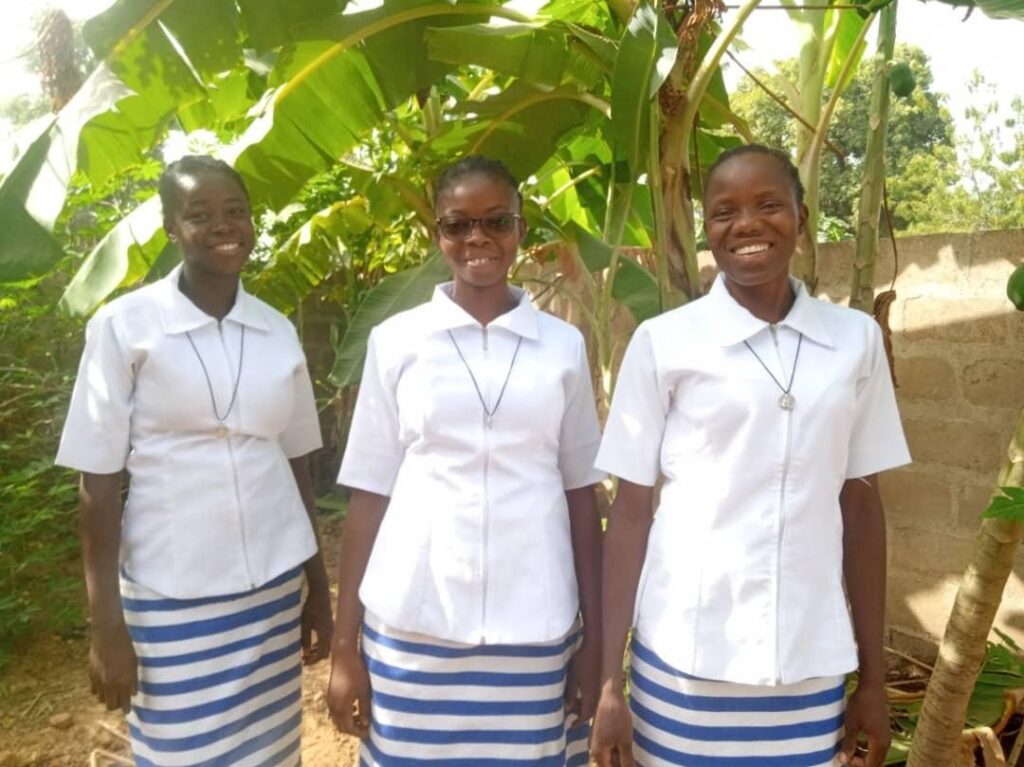
The Holy Family Care Centre is a residential care facility for children located in Ofcolaco, South Africa. Currently home to 75 abandoned and chronically ill children, Holy Family provides a loving, nurturing environment for children with critical medical needs, who have nowhere else to turn. The centre has a nursery which accommodates up to eight babies, plus four dormitories, two dedicated to older boys and girls, and two for boys and girls aged 2 to 10. The younger children, toddlers and preschoolers aged between 2 and 5 years, also sleep here, but are often overwhelmed by sharing the space with the older children in the group. The OLSH Sisters who take care of the crèche children feel that they would be better cared for if they had their own smaller space in a dedicated dormitory, which would reduce the noise and overstimulation at bedtime.
The Holy Family team need €20,000 to fund the toddlers’ area,
which will accommodate beds for up to 20 children and two staff members,
with space for winding down and quiet play.
The Jules Chevalier Health Centre was set up in December 2020 in the village of Maka Kahone in Senegal, working with the Ministry of Health to promote accessible healthcare for all, regardless of race, religion, or ethnicity. The centre offers a range of treatments to the people of Maka Kahone and surrounding villages, and its facilities are in great demand, as it is recognised for its high levels of care for patients. The health centre is now working to set up a laboratory with specific equipment, and staffed by trained personnel, in order to best manage the diagnoses of contagious diseases, maternity care, the care of young babies and children, predominant problems such as diabetes and high blood pressure, and further issues.
OLSH Sisters need €12,000 to purchase the necessary equipment for the new laboratory,
including a microscope, a centrifuge, micropipettes, a rotator, and other essential items.
The Jules Chevalier Health Centre in Mbandaka, Congo, has recently been extended, and is in need of new equipment to fill the new facility. Fundraising is underway to meet the centre’s current goals, including purchasing new medical equipment, reducing the maternal and infant mortality rate in Mdandaka and its surrounds, and improving the conditions of care for patients and the working conditions of staff at the centre.
The equipment required includes 10 beds, a consultation table, a medical stepladder,
10 bedside tables, a small surgery box, a delivery box, baby scales,
and other items, at a cost of €10,000.
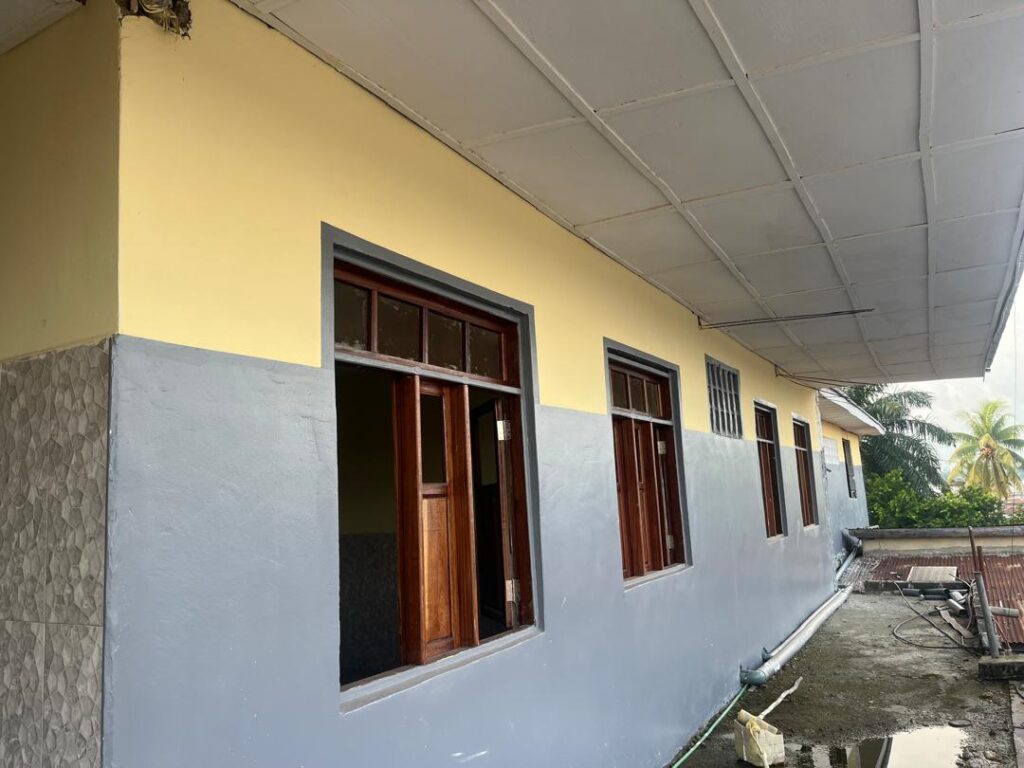
CAN YOU HELP OUR OLSH SISTERS IN AFRICA?
With ongoing mission projects in education, childcare, agriculture, and healthcare, OLSH ministry is touching and transforming lives across Africa.
“We are very grateful for all that you are and do for us. On behalf of the Daughters of Our Lady of the Sacred Heart, I thank all those who pay special attention to our projects.”
~ Sr Marie-Laure Lankoandé FNDSC, Regional Superior of Burkina Faso
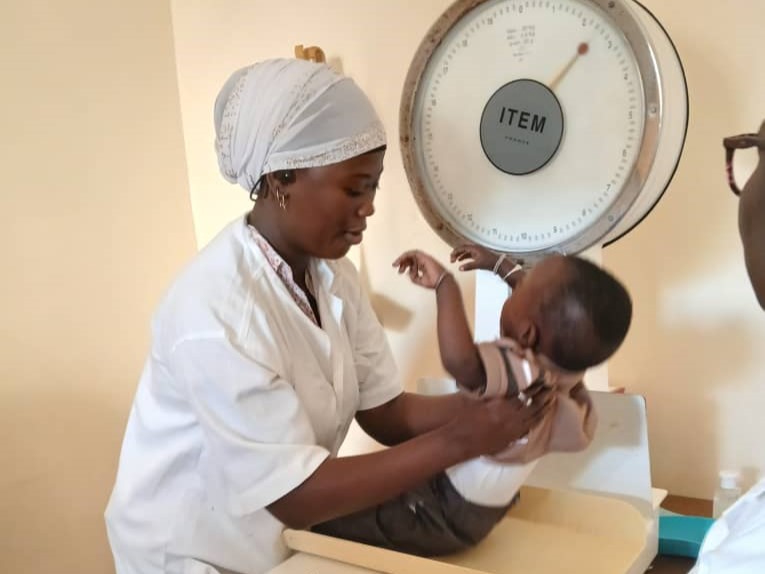
PLEASE SUPPORT OUR OLSH SISTERS IN THEIR GLOBAL OUTREACH
Feb 5, 2025
The Catholic Church in South Sudan is at the forefront of pastoral ministry in both education and health. Our impact is easily quantifiable by the number of students taught or patients treated. However, one of its most important roles is perhaps the most difficult to measure, peacebuilding. Grounded in the teaching of Jesus, it is the call of Christians everywhere to be peacemakers, fostering reconciliation and healing in our communities, giving witness by our lives to a different way that is grounded in justice and mercy.
This ministry in South Sudan is complex, to say the least. Following five decades of fighting for freedom from Sudan, 2011’s independence was a time of optimism for a wounded society. However, the ensuing civil war in 2013 saw over 400,000 people being killed, millions become displaced, and countless men, women, and children left traumatised. According to the UN, over a million people have fled here from war-torn Sudan since April of last year. It is, in many ways, the making of a perfect storm. But violence is like that, destructive, loud, and indiscriminate. How could you possibly respond to something so big that it is almost an act of God, although it is definitely not! Well, you could go for a walk.
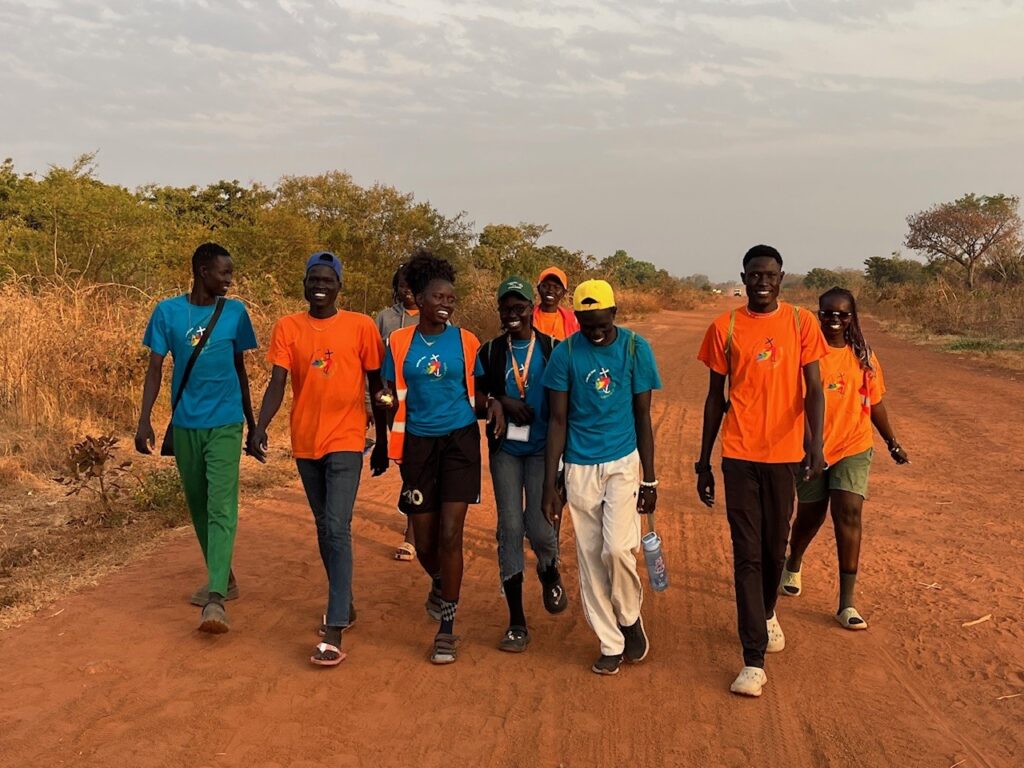
The Diocese of Rumbek Pilgrimage of Peace first started in February 2023. The idea came from Sr. Orla Treacy, a Loreto sister, who thought it would be a good idea for young people to walk from the centre of South Sudan to Juba to welcome Pope Francis during his first official visit to the country. Working with the youth team of the Diocese, it was an incredible success and captured the hearts of the people. The Pope even requested to meet the group personally when they arrived. Since, then it has continued to grow, with another pilgrimage in the west of the Diocese in 2024.
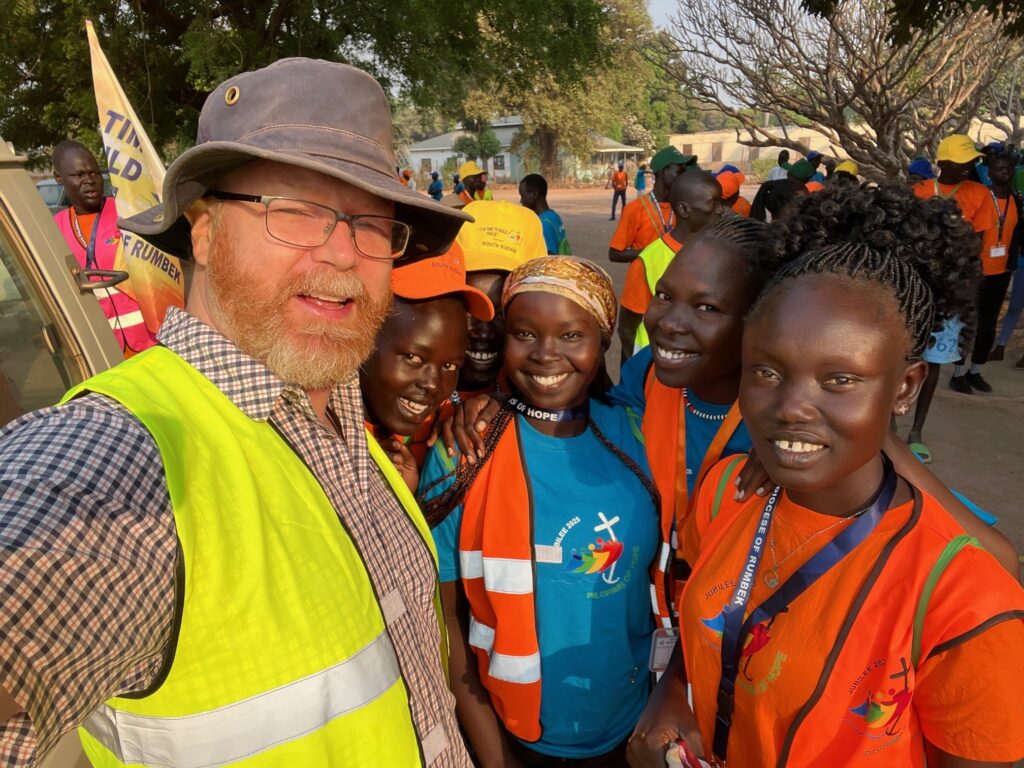
This year the pilgrimage was organised, not by the priests and religious of the Diocese, but by the youth themselves. Young men and women, veterans of last year’s pilgrimage, planned, organised, and implemented everything, from the beans we ate, to the route we took, to the places we slept. This gave us, as sisters, brothers, and priests, the opportunity to really journey with the youth, listening to their stories and sharing their hopes. On our first day we began with Mass in the Cathedral of Rumbek and were joined by the newly appointed Apostolic Nuncio to South Sudan, Archbishop Séamus Horgan (from Co. Clare), and our own Bishop Christian Carlassare.
Our route would take us through the south of Lakes State and into Western Equatoria, from Rumbek to Malou, Wulu, Mvolo, Mapourdit, and finally to Aluakluak, covering a distance of over 125km. We slept each night in the simple classrooms of local schools, although many of us opted to spend the night camped out under the stars. Possibly the one advantage to only 8% of the population of South Sudan having electricity at home is that the night skies are awesome in the truest sense of the word.
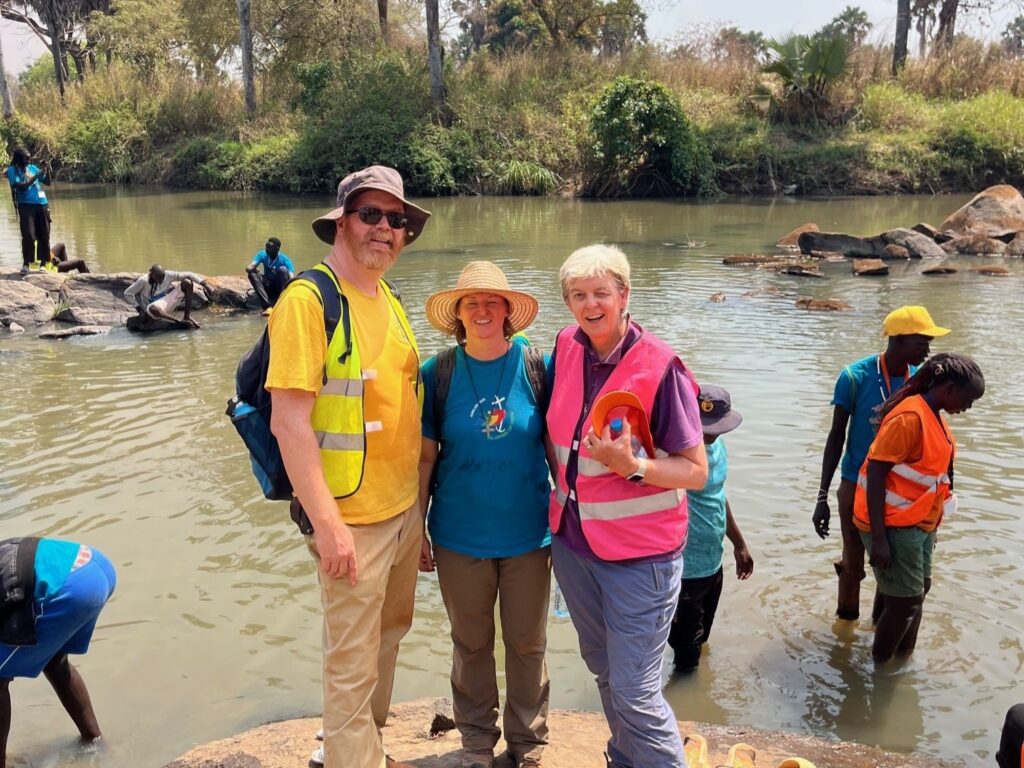
Each day we would rise at 5:30am, take a few minutes for warming up, and then hit the road. In the course of our pilgrimage, we would stop and speak with those we met along the way. Such a large and exuberant group caused a lot of comment. What were we doing? Why were we walking, when you could drive? How does a pilgrimage really help to promote peace?
The last question really touches into the heart of what we were trying to do. Not so long ago, many of the roads and paths we walked were impassable due to insecurity. Violence, theft and shootings were commonplace. To be able to walk now, without weapons, police, or security signalled loudly more than words could express that something different, something new was happening.
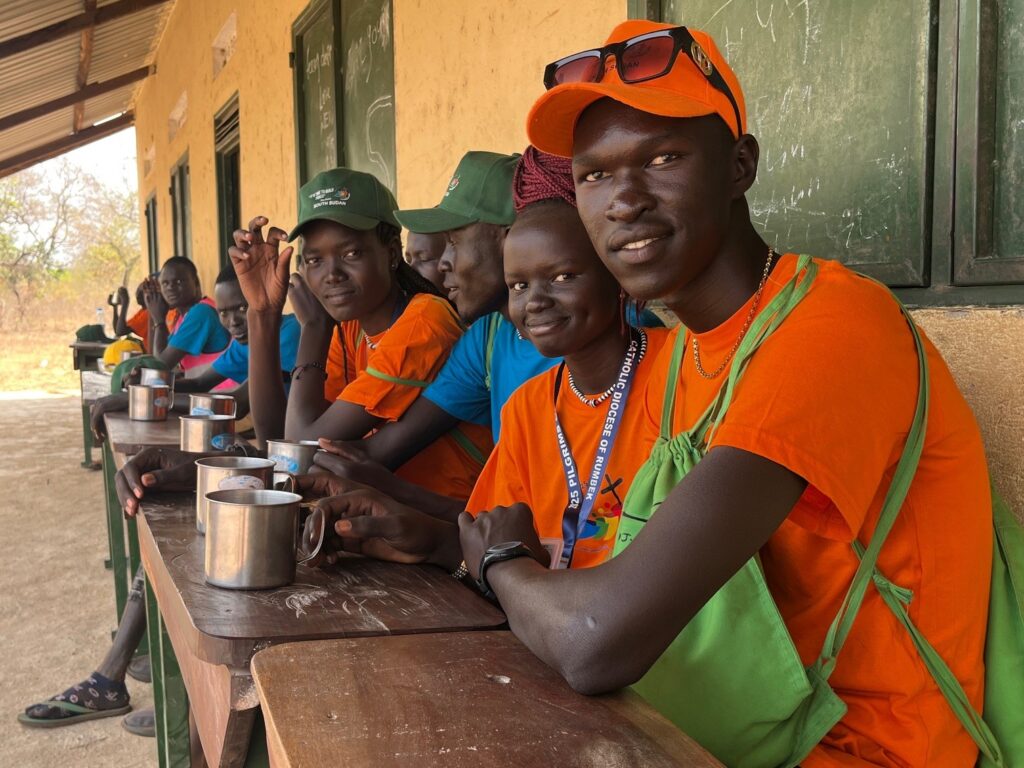
In addition, our group was made up of young people from around the Diocese, drawing from groups that have been traditionally hostile to one another. Their ability to walk together and work for peace re-enforced our message of hope. As the sun set, we were joined by the local people as we celebrated Mass and shared a simple meal of rice and beans together.
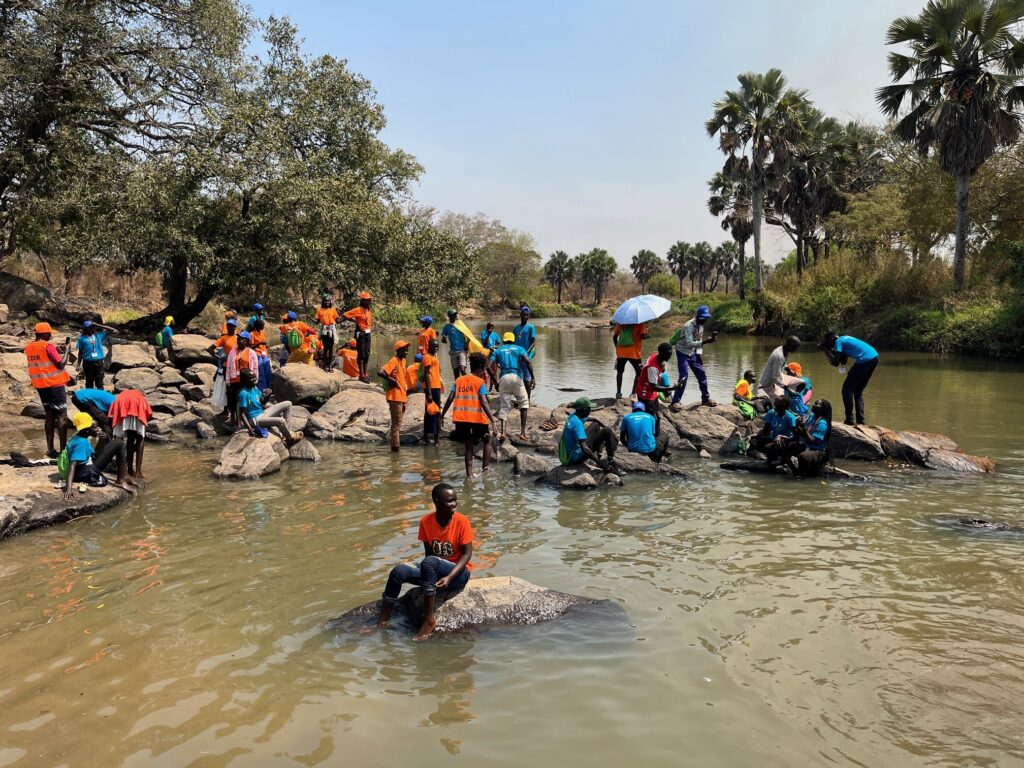
By the end of the week, we were blistered and, in my case, a little sunburnt, but happy. One of the group calculated that, between all of us, we had walked 27,000,000 million steps. New friendships had formed that would have been quite impossible before. We made our way home, with perhaps a renewed appreciation for running water and corrugated metal roofs. Above all, our time together and with the people we met was a quiet, but joyful witness of what could be, peace for a people weary of war and ready for a new beginning. It just takes a step.
Nhialic ke yin,
Fr. Alan
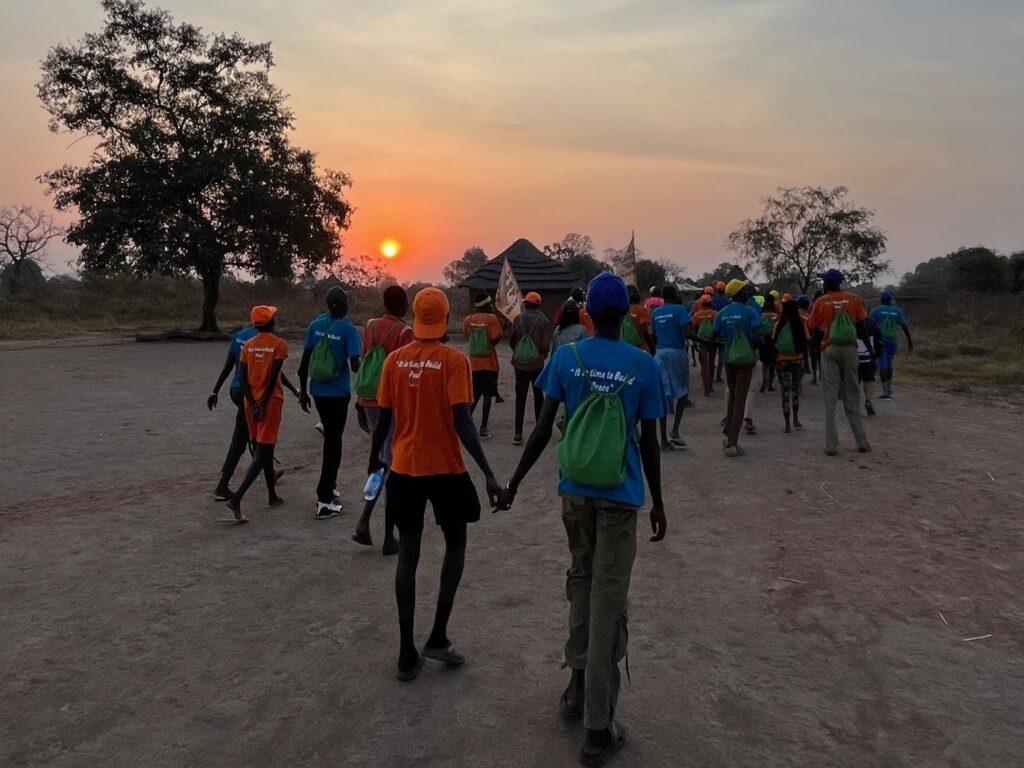
Read more from Fr Alan’s missionary journey in South Sudan:

